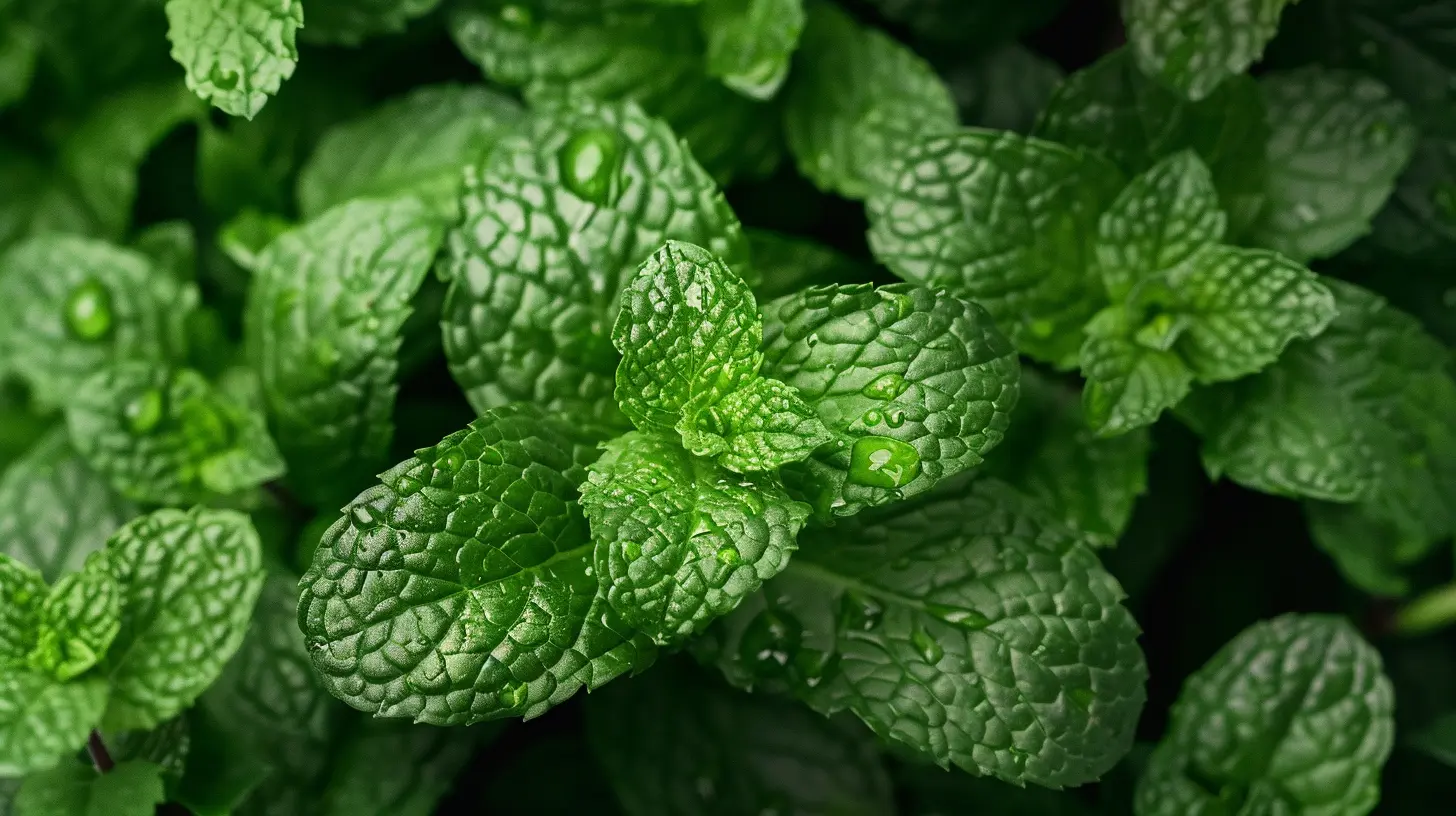Peppermint Oil: Natural Relief for Digestive Distress
15 July 2025
Let’s talk about something that’s not exactly dinner table conversation, but super important—your gut. If you've ever felt like a balloon about to pop after a meal or been caught in the embarrassing clutches of bloating and gas, you’re not alone. Digestive discomfort is like that annoying roommate who never pays rent and talks loudly on the phone. But guess what? There’s a natural bouncer for that gut party crasher—peppermint oil.
Yes, the same peppermint that flavors your toothpaste, freshens up your breath, and jazzes up your holiday lattes can also do wonders for your digestive system. Come along as we take a fun, slightly quirky, but gut-deep dive into how peppermint oil might just be your new BFF (Best Fiber-Free Fix).
What Is Peppermint Oil, Anyway?
Okay, let's start with the basics. Peppermint oil is an essential oil derived from—you guessed it—peppermint (Mentha × piperita) leaves. This little green powerhouse is a hybrid between watermint and spearmint. But don’t let its dainty appearance fool you; it’s loaded with potent compounds like menthol, which gives it that signature cooling sensation and most of its medicinal punch.Now, don't go chugging down straight peppermint oil like it's your morning green juice. It’s concentrated. A little goes a long way.
The Gut-Brain Connection (Yes, It's a Thing)
Before we dive into how peppermint oil helps your tummy feel like a Zen garden, we gotta talk about the gut-brain connection. Ever had “butterflies” in your stomach before a big meeting? That’s your brain talking to your gut. It’s like a never-ending Zoom call between the two—sometimes helpful, sometimes glitchy.This connection is why stress can mess with your digestion big time. Think constipation, diarrhea, and bloating out of nowhere—yep, stress is often the root cause. The cool thing is, peppermint oil works not only on your gut directly but also helps calm the “wires” between your gut and brain.
How Peppermint Oil Works Its Magic on Your Digestion
So, what makes peppermint oil the MVP of natural digestion aids? Let’s break it down:1. Smooth Muscle Relaxant
Picture this: your intestines are like a long, twisty water slide. When you’re stressed or your gut’s irritated, that slide gets spastic—tight, crampy, and unpredictable. Peppermint oil helps relax those muscles. That makes transit smoother, like flipping on the water jets at a lazy river.This is a game-changer for people with IBS (Irritable Bowel Syndrome). Multiple studies have shown that enteric-coated peppermint oil capsules can reduce abdominal pain, bloating, and gas. Translation: less clutching your stomach and more living your life.
2. Relieves Bloating and Gas
Ever felt like your stomach had a mind of its own after a burrito binge? That’s usually trapped gas having a party in your intestines. Peppermint oil’s antispasmodic action calms your digestive tract, helping those gas bubbles make a graceful exit stage left.Bonus: It also helps reduce the feeling of “fullness” that makes you want to unbutton your jeans at the table. We’ve all been there.
3. Eases Nausea
If you’ve ever been so nauseated that smelling food makes you wish for a teleportation device, peppermint oil’s got your back. Its aroma alone can ease queasiness. That’s why it’s often used in aromatherapy and motion sickness solutions. Pop a peppermint oil capsule or simply inhale the scent—it can help your stomach settle like a toddler after a nap.4. Improves Bile Flow
Bile is like your gut’s natural dish soap. It breaks down fats so your body can absorb them. Peppermint oil stimulates bile production, which means you digest fatty foods better and don’t feel like you swallowed a brick.
Best Ways to Use Peppermint Oil for Digestion
Alright, now we’re getting to the good stuff: how to actually use this cool, minty miracle safely and effectively.1. Enteric-Coated Capsules
For digestive distress, capsules are your best and most researched bet. Make sure they’re enteric-coated, which means they’ll survive the acid bath of your stomach and dissolve where they’re needed most—your intestines. Without this, you might just end up with peppermint-flavored heartburn (not cool).- Take before meals for the best results.
- Follow the dosage on the label or ask your doc.
- Be consistent but don’t go overboard.
2. Peppermint Tea
Got some mild bloating or just want to give your gut some love after a heavy meal? A warm cup of peppermint tea can do wonders. It’s soothing, hydrating, and smells like a spa for your insides.3. Aromatherapy
Even inhaling peppermint oil can ease nausea and reduce anxiety, which often worsens gut issues. Add a few drops to a diffuser, or sniff from the bottle (don’t stick it too close to your nose—it’s strong). It’s like a breath mint for your brain.4. Topical Application (with Dilution!)
Mix a drop or two of peppermint oil with a carrier oil (like coconut or jojoba) and rub gently on your abdomen. It’s not as direct as capsules, but it can help calm spasms and relieve discomfort. Just remember—never apply essential oils undiluted directly to your skin unless you’re into chemical burns (spoiler: you’re not).Peppermint Oil vs. Other Digestive Remedies
You might be wondering, “Why not just use an over-the-counter antacid or gas reliever?” Sure, those work—for now. But they often only treat the symptoms, not the root cause. Plus, long-term use can mess with your gut flora, mess up your nutrient absorption, and even lead to rebound symptoms—basically inviting the problem back in with open arms.Peppermint oil, on the other hand, helps regulate your gut naturally. It doesn’t just mask the discomfort; it helps your system work better from the inside out. Kind of like fixing the plumbing instead of just mopping up the leaks.
Who Should Avoid Peppermint Oil?
Now, before you go oil-happy, it’s worth noting that peppermint oil isn’t for everyone. If you fall into any of these categories, chat with your healthcare provider first:- GERD/Acid reflux: Peppermint can relax the lower esophageal sphincter, which might make reflux worse. So yeah, it’s a bit of a frenemy in this case.
- Pregnant or nursing: Safety not fully established—better to be cautious.
- Young children and infants: Essential oils are a no-go for tiny humans unless specifically recommended.
Tips for Picking a Quality Peppermint Oil
Not all peppermint oils are created equal, folks. You don’t want the bargain bin version loaded with fillers and synthetic additives. Look for:- 100% pure, therapeutic-grade peppermint oil
- Organic and non-GMO labels
- Reputable brands with transparent sourcing
- Proper packaging (dark glass bottles to preserve potency)
And no, that bottle of minty air freshener in your bathroom does not count.
Let’s Bust Some Peppermint Myths
“It’s just for fresh breath.”
Sure, peppermint oil can make your mouth smell like a candy cane, but that’s like saying a Swiss Army knife is only good for the scissors. Multi-functional = understatement of the year.“Essential oils are snake oil.”
Here’s the thing—yeah, not all essential oils have hard-core science backing. But when it comes to peppermint oil and digestive health, there’s actual research behind the claims. Not fairy dust, not placebo—real, peer-reviewed stuff.“More is better.”
Nope. Trust me, taking too much peppermint oil can irritate your gut just as much as help it. It’s a “just enough” kind of situation, like salt in soup.Final Thoughts: Peppermint Oil Is a Gut’s Best Friend
Let’s be real—digestive discomfort isn’t just uncomfortable. It can throw off your entire day, your mood, your sleep—you name it. And while lifestyle changes and diet matter big time, sometimes you need a little extra help. That’s where peppermint oil sneaks in with a high five and a fresh scent.It’s natural, it’s effective, and (bonus!) it doesn’t taste terrible. Whether you're dealing with bloating, cramps, or those mysterious gurgles from the deep, peppermint oil might just be the soothing sidekick your gut’s been crying out for.
So next time your stomach starts acting like it’s auditioning for a percussion band, consider reaching for a little bottle of peppermint magic. Your intestines might just throw you a thank-you parade.
all images in this post were generated using AI tools
Category:
AromatherapyAuthor:

Sophia Wyatt
Discussion
rate this article
1 comments
Rivera McCallum
Thank you for this informative article! Peppermint oil has truly transformed my approach to digestive discomfort—nature’s remedy at its best!
July 26, 2025 at 3:38 PM

Sophia Wyatt
Thank you for your kind words! I'm glad to hear that peppermint oil has made a positive impact on your digestive health!


